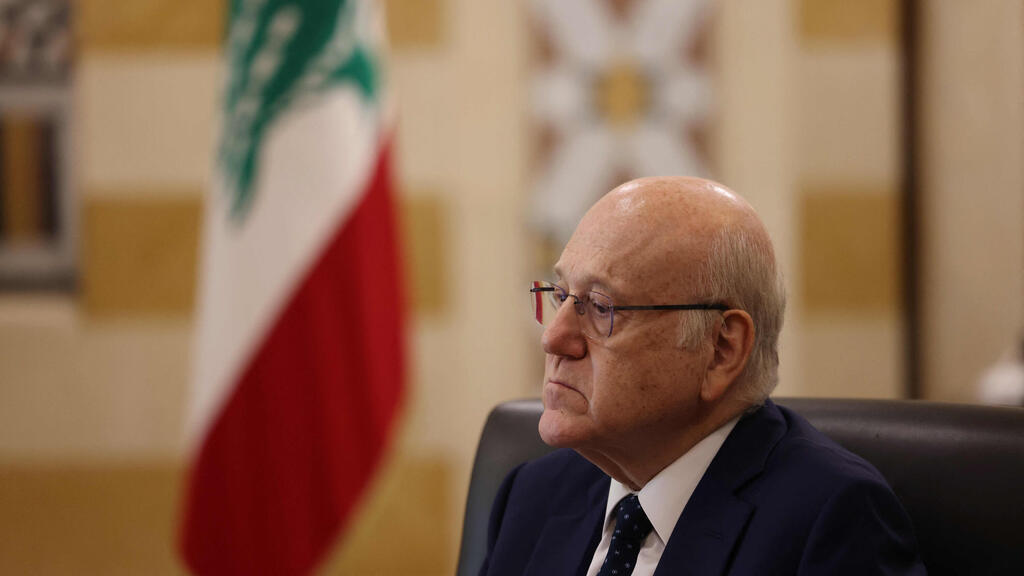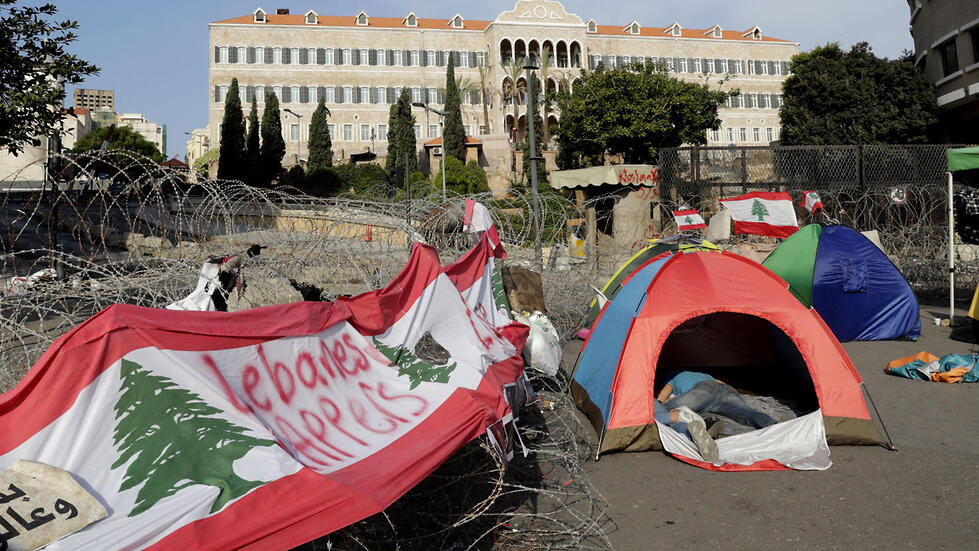Lebanon's caretaker Prime Minister Najib Mikati was appointed in 2021 to lead the government in Beirut until a new cabinet could be formed. As Lebanon's wealthiest man, many hoped he could rescue the failing state from economic collapse.
"Mikati attempted to establish himself as a central figure who could pull Lebanon out of its financial crisis," says Dr. Ido Zelkovitz, head of the Middle East Studies Program at Jezreel Valley Academic College. "He had a strong background in business and education." A graduate of the American University in Beirut, Mikati also studied business at INSEAD in France and later at Harvard.
Lebanese return to south after cease-fire deal goes into effect
However, his longstanding alliance with the Syrian regime and Hezbollah has defined much of his political career. He first came to power in 2005 as an interim leader following the assassination of then-Prime Minister Rafik Hariri. Public outrage over the murder, carried out by Hezbollah at the direction of Damascus, brought down the government. Mikati, then a member of parliament, was appointed to serve until elections were held.
In 2011, after Saad Hariri's government—led by the slain prime minister's son—collapsed, Mikati returned to lead but was forced out two years later as opposition to Syrian influence in Lebanon once again reached a boiling point.
In 2021, Mikati was supported by most political parties in Parliament, including Hezbollah, to take the reins of government once again. He pledged to form a technocratic cabinet without political affiliations to implement the economic reforms needed to save the struggling nation. However, to the Lebanese public, Mikati was seen as part of the corrupt elite responsible for the crisis.
Under his leadership, Lebanon’s local currency collapsed, inflation soared, food prices spiked and the poverty rate reached 78%, according to the UN. Daily power outages and fuel shortages became the norm, prompting Mikati to appeal to Arab nations for assistance.
"As long as he is indebted to Hezbollah, he remains one of the obstacles to economic recovery," says Zelkovitz. Hezbollah’s dominance is a key reason why the West and Sunni Arab nations refrain from investing in Lebanon, leaving Mikati unable to secure the support needed to rebuild.
"He is a band-aid on the problem, at best," says Dr. Eitan Ishai from the Department of Islamic and Middle Eastern Studies at the Hebrew University. "Although biased toward one side, his lack of charisma makes him a convenient choice for prime minister. He comes from a well-known Sunni family, has political experience and is acceptable to Hezbollah. But Lebanon, mired in economic, political, and social crisis since 2019, needs more than Mikati, especially during a war that came out of nowhere. He will bring no transformative change."
During the months of war, the caretaker prime minister was a vocal critic of Israel. While Mikati engaged Arab and international leaders to push for a cease-fire, his influence was limited. It was Parliament Speaker Nabih Berri, representing Hezbollah, who played a more central role in cease-fire negotiations.
After the cease-fire agreement took effect, Mikati urged residents of southern Lebanon not to return to their villages until instructed by the Lebanese army. His calls were largely ignored as convoys of displaced villagers headed south, many waving Hezbollah flags.
Despite his years-long alliance with Hezbollah, Mikati diverges from the group on one key issue: Iran’s involvement in Lebanon. In October, Iran’s Parliament Speaker Mohammad Bagher Ghalibaf told Le Figaro that Tehran was willing to negotiate the implementation of UN Resolution 1701, passed after the 2006 Second Lebanon War. Mikati was outraged and summoned the Iranian chargé d'affaires to clarify the remarks. "This is an outrageous intervention in Lebanese internal affairs and an attempt to assert unacceptable control," he said.
4 View gallery


Hezbollah supporters return to Beirut's Dahieh after cease-fire goes into effect
(Photo: Thaier Al-Sudani / Reuters)
Zelkovitz notes that Mikati recognizes Hezbollah’s support among some Lebanese and is unlikely to challenge its political standing after the military losses it sustained in the war. "He wants to maintain the Shi’ite-Sunni consensus," he says.
Get the Ynetnews app on your smartphone: Google Play: https://bit.ly/4eJ37pE | Apple App Store: https://bit.ly/3ZL7iNv
"If he could disarm Hezbollah, I believe he would do so happily. He is, first and foremost, a patriot who wants to bridge the gap between sectors," says Zelkovitz. "However, I don't think the Lebanese army is capable of disarming Hezbollah, especially given the strong affiliation between the military and the Iran-backed group. American military equipment and technology, especially those meant for internal security, could easily find their way into Hezbollah's hands."
4 View gallery


US envoy Amos Hochstein meets Lebanon's Parliament Speaker Nabih Berri
(Photo: Thaier Al-Sudani / Reuters)
Lebanon has been without a president for two years since Michel Aoun stepped down in October 2022. According to the political agreement among Lebanon's different religious groups, the president must come from the Christian Maronite community, while the prime minister must be from the Sunni Muslim sector. This arrangement has led to a political stalemate, with no single faction able to impose its will on others or significantly alter the status quo.
Since Aoun's departure, Mikati and Berri have attempted to lead amid the leadership vacuum.






